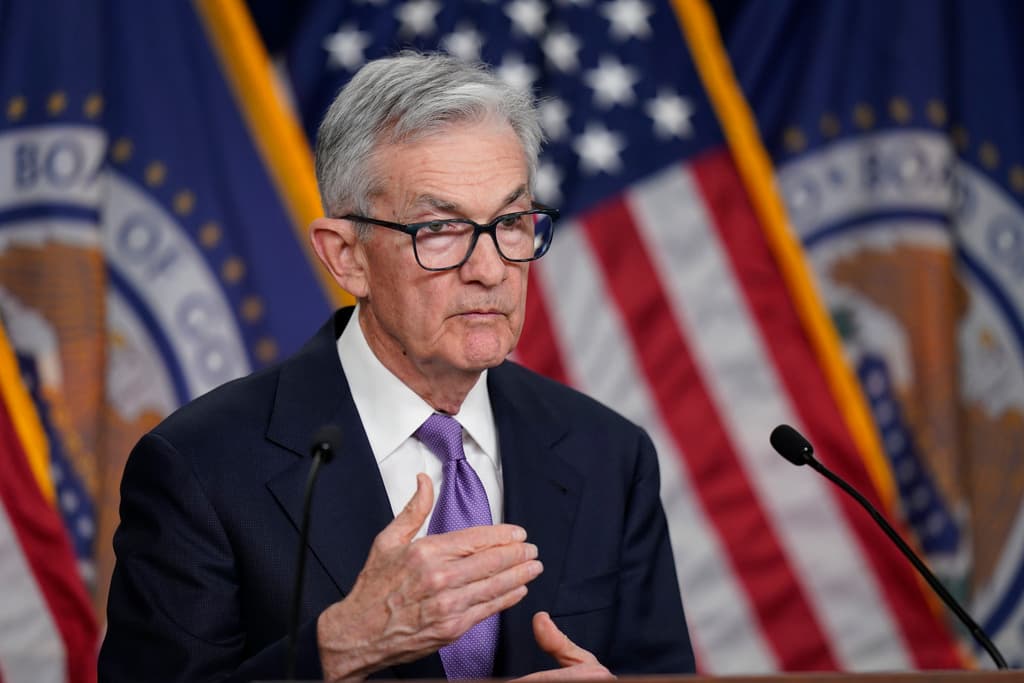Should the Fed Be Independent or Accountable?
The central bank has lost all its capital more than four times over, and its real capital today is negative $158 billion.

As October 2024 begins, the Federal Reserve’s accumulated operating losses have passed the astonishing amount of $200 billion — to be specific, its losses reached $201.2 billion as of October 2. * Besides far exceeding the Fed’s capital, these losses are also a $201 billion and growing hit to taxpayers. This alone must call into question the Fed’s claim that it should be “independent.”
Even without the losses, the Fed’s refrain that it both is and should be independent contradicts the fundamental American Constitutional principle that all parts of the government must be subject to checks and balances from others. The Fed, like all government bureaucracies, yearns to be free from the mere elected representatives of the People.
Because it is such an immensely powerful part of the government, the Fed especially needs to have the fundamental checks and balances principle firmly applied to it. Nevertheless, the Fed’s independence claim is supported by many commentators, particularly economists and journalists. This seems to reflect the Fed’s formidable public relations skills and the human longing to believe that the inherently uncertain economic world can be taken care of by some benevolent philosopher-kings in the Fed.
Consider that the Fed is in essence an attempt at central planning and price fixing. In this attempt, it uses changing and debatable theories and data reflecting the past. There is no data on the future. Neither the Fed nor anybody else has the knowledge of the future which would be required to “manage the economy.”
So the Fed could not, say, know what the results would be of its unprecedented monetizing of $8 trillion in long-term Treasury debt and mortgages, or that one result would be its massive losses. This bloating of its balance sheet by “quantitative easing” was accurately described by the former Fed chairman, Ben Bernanke, as “a gamble.”
The Fed’s efforts share the impossibility of the requisite knowledge with all tries at government central planning, as demonstrated by Ludwig von Mises and Friederich Hayek. Neither the Fed nor anybody else can know, but only guess about, to take another example, what the celebrated “neutral rate of interest” is or was or will be.
That this theoretical neutral rate is called “r-star” gave rise to the brilliant and honest aphorism of Fed Chairman Jerome Powell: “We are navigating by the stars under cloudy skies.” While flying by the seat of its pants, gambling with trillions of dollars of other people’s money, and navigating by the stars under cloudy skies, how independent should it be?
In 1964, the Domestic Finance Subcommittee of the House Committee on Currency and Banking held hearings on “The Federal Reserve After Fifty Years.” The Chairman of the Banking Committee was then the Democrat from Texas Wright Patman. Among the conclusions were: “An independent central bank is essentially undemocratic”; and “Americans have been against ideas and institutions which smack of government by philosopher-kings.”
These propositions in American political philosophy are still correct. The Fed should not be a philosopher-king. It should be accountable. My conclusion is that the Fed should be independent from the President and the Treasury Department, but accountable to the Congress. The Congress possesses the Constitutional Money and Taxing Powers which the Fed serves.
We must include taxation because the inflation the Fed creates is a tax, which takes the People’s purchasing power and transfers it to the government. If Congress exercises its authority, it can rewrite the Federal Reserve Act and instruct, redirect, restructure,or even abolish the Fed. It, after all, created the Fed in the first place.
It can review anything about the Fed it wants to. The definition of the kind of money America will have, whether the nation will have stable prices or perpetual inflation, and if inflation, at what rate, are all essential Congressional responsibilities, not prerogatives of the Federal Reserve. So are the powers and the organization of the Fed.
That underscores the need for Congress to review whether it wants a national goal of 2 percent inflation forever with perpetual depreciation of the currency — meaning a policy that the money the government issues should become less valuable.
The financial statements of the Fed also warrant scrutiny by Congress. Losses of $201 billion compared to the Fed’s total capital of $43 billion means the Fed’s real capital is negative $158 billion. It has lost all its capital more than four times over. If the Congress is not happy with a technically insolvent central bank, it could recapitalize it, as part of establishing the Fed’s Constitutional accountability.
___________
* Federal Reserve H.4.1 Release, October 3, 2024, Section 6.

